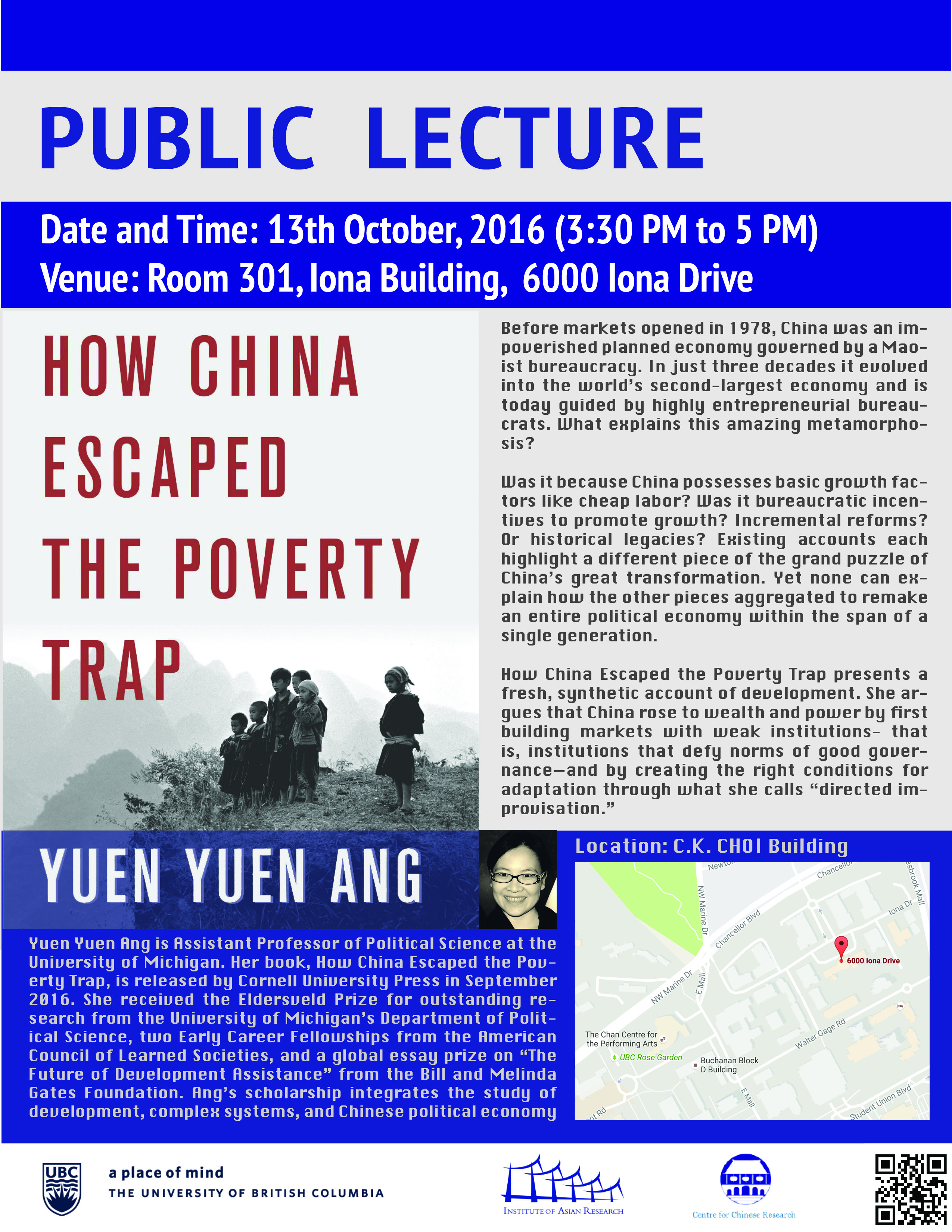Speaker: Prof. Yuen Yuen Ang
Abstract
Before markets opened in 1978, China was an impoverished planned economy governed by a Maoist bureaucracy. In just three decades it evolved into the world’s second-largest economy and is today guided by highly entrepreneurial bureaucrats. What explains this amazing metamorphosis?
Was it because China possesses basic growth factors like cheap labor? Was it bureaucratic incentives to promote growth? Incremental reforms? Or historical legacies? Existing accounts each highlight a different piece of the grand puzzle of China’s great transformation. Yet none can explain how the other pieces aggregated to remake an entire political economy within the span of a single generation.
How China Escaped the Poverty Trap presents a fresh, synthetic account of development. She argues that China rose to wealth and power by first building markets with weak institutions- that is, institutions that defy norms of good governance—and by creating the right conditions for adaptation through what she calls “directed improvisation.”
About the Speaker
Yuen Yuen Ang is Assistant Professor of Political Science at the University of Michigan. Her book, How China Escaped the Poverty Trap, is released by Cornell University Press in September 2016. She received the Eldersveld Prize for outstanding research from the University of Michigan’s Department of Political Science, two Early Career Fellowships from the American Council of Learned Societies, and a global essay prize on “The Future of Development Assistance” from the Bill and Melinda Gates Foundation. Ang’s scholarship integrates the study of development, complex systems, and Chinese political economy
